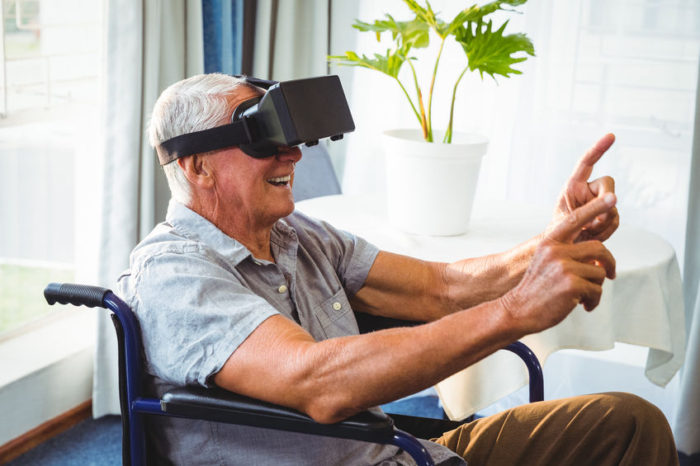The U.S. Food and Drug Administration (FDA) has approved a (VR) system that will help reduce chronic lower back pain.
The FDA gave AppliedVR’s EaseVRx system a Breakthrough Device designation last year. Now, the FDA has granted an official market authorization allowing the device to be used by prescription, “in patients 18 years of age and older with diagnosed chronic lower back pain.”
“Pain reduction is a crucial component of living with chronic lower back pain,” says Christopher Loftus, acting director of the FDA’s Office of Neurological and Physical Medicine Devices. “Today’s authorization offers a treatment option for pain reduction that does not include opioid pain medications when used alongside other treatment methods for chronic lower back pain.”
It has a headset and attachment called the “breathing amplifier” that takes the breathing noise back into the headset’s microphone. It helps in breath-based biofeedback exercises. The program is based on pre-existing cognitive-behavioral therapy (CBT) principles.

“EaseVRx combines biopsychosocial education, diaphragmatic breathing training, relaxation response exercises that activate the parasympathetic nervous system, and executive functioning games to provide a mind-body approach toward living better with chronic pain,” a team of researchers explains in a study reporting the results of a recent clinical trial testing the device. “The standardized 56-day program delivers a multifaceted combination of pain relief skills training through a prescribed sequence of daily immersive experiences. Each VR experience is 2-16 minutes in length (average of 6 minutes).”
This technology was trialed on 179 people with chronic back pain for eight weeks. Half of the people were given the EaseVRx program, and the other half got a VR headset but only experienced sessions featuring two-dimensional nature footage with no CBT.
It was found out that two-thirds of the subject reported a 30 percent reduction in pain and 46 percent reported over 50 percent reduction in pain. This compared to 41 percent of the control group reporting a 30+ percent drop in pain and 26 percent reporting a 50+ percent drop.

In the follow-up period of three months, the situation stayed the same.
Last year the FDA authorized a prescription-based Apple Watch app designed to improve sleep patterns in people suffering from post-traumatic stress disorder (PTSD). The FDA also recently approved the first “prescription video game” to help reduce the symptoms of ADHD in children.
“For too long, we’ve relied on the notion that people need to take pills or rely on surgery to feel better and lead a better quality of life,” says Matthew Stoudt, CEO of AppliedVR, in a recent statement. “At AppliedVR, we’re building an unparalleled body of evidence for providers and payers to demonstrate that immersive therapeutics can fill the massive unmet need for patients who are frustrated by current treatment paradigms. And, we are starting with chronic pain, one of the most complex, costly conditions.”


